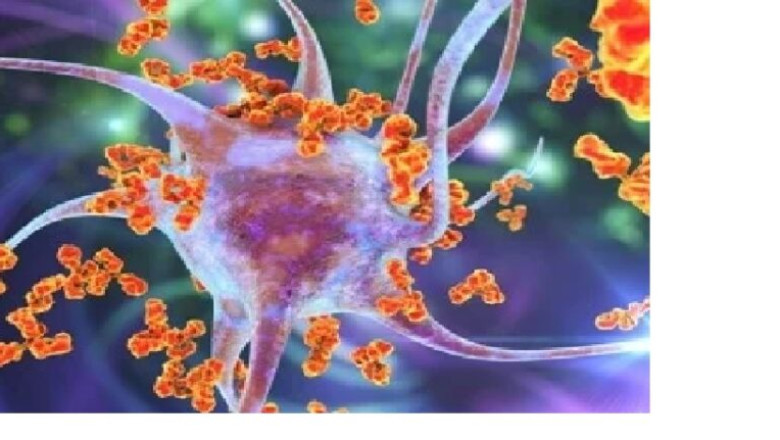views

Global Muckle Wells Syndrome: A Rare Genetic Autoinflammatory Disease
Introduction
Global Muckle Wells Syndrome (GMW) is a very rare genetic autoinflammatory disease characterized by recurrent episodes of fever, rashes, joint pains, eye redness or pain, and fatigue. This disease is passed down through families and is caused by mutations in the gene called cryopyrin which regulates the immune system. In this article, we will discuss the signs and symptoms, causes, diagnosis and treatment of GMW syndrome.
Signs and Symptoms
The signs and symptoms of Muckle-Wells syndrome typically appear in childhood and get worse with age if left untreated. Some of the key signs and symptoms include:
- Recurrent fevers - High fevers occur regularly which can last from hours to days. The fever episodes are associated with the other symptoms.
- Skin rash - Red spots or bumps under the skin that may join together to form plaques. They most often appear on the face, chest, ears and limbs.
- Joint pain - Pain and swelling in the joints like knees, ankles, wrists and elbows. This arthritis is sometimes debilitating.
- Eye inflammation - Redness of eyelids and sensitivity to light. It can also cause blurring of vision.
- Fatigue - Constant feeling of tiredness and exhaustion between fever episodes.
- Hearing loss - Gradual but progressive hearing impairment in some patients.
If left untreated, recurring symptoms can cause neurological problems, sensorineural deafness, visual impairment and amyloidosis - a serious condition affecting vital organs.
Causes
GMW syndrome is caused due to mutations in a gene called NLRP3 (also known as CIAS1) which provides instructions to produce cryopyrin protein. Cryopyrin forms part of the body's natural defense system against infection and helps regulate inflammation. Mutations in the NLRP3 gene lead to excessively high levels of interleukin-1 beta, a chemical messenger that triggers inflammation throughout the body. This causes systemic inflammation and symptoms characteristic of the disease. The condition is inherited in an autosomal dominant pattern which means only one copy of the defective gene is sufficient to cause the disorder.
Diagnosis
There is no single test to diagnose GMW syndrome. Doctors consider a patient's medical history, conduct physical examination and review results of blood tests and imaging scans. Some key diagnostic tests include:
- Genetic testing - Looking for mutations in the NLRP3 gene to confirm a clinical diagnosis.
- Blood tests - May show high inflammatory markers like C-reactive protein and sedimentation rate during flare-ups.
- Skin biopsy - Sample of skin rash examined under microscope to rule out other conditions.
- Eye examination - Conducted by an ophthalmologist to check for uveitis or iritis.
- Audiometry - Test to detect sensorineural hearing loss.
A diagnosis is made based on a combination of clinical symptoms and genetic testing results. Excluding other diseases with similar presentations is also important.
Treatment and Management
There is no cure for GMW syndrome but treatment aims to suppress inflammation and control symptoms. Primary treatment approaches include:
- Anti-IL-1 medications - Drugs like anakinra and canakinumab block the IL-1 protein to reduce inflammation. They are highly effective.
- Corticosteroids - Oral, topical or injected steroids provide relief during disease flares.
- Non-steroidal anti-inflammatory drugs (NSAIDs) - Medications like ibuprofen help manage arthritis pain and fever.
- Immunosuppressants - Methotrexate or colchicine may be used if anti-IL-1 drugs are not tolerated.
- Monitoring of complications - Regular checkups help detect early signs of hearing loss or amyloidosis for prompt intervention.
- Avoiding triggers - Stress, alcohol and foods rich in purines can worsen symptoms in some patients.
With proper long-term treatment, patients can achieve remission from symptoms and prevent disease progression. However, lifelong treatment and monitoring is usually required.
Conclusion
In summary, Global Muckle Wells Syndrome is a rare genetic disorder characterised by episodes of fever, rash, joint pain and eye inflammation. It arises due to mutations in the NLRP3 gene. Prompt diagnosis and treatment with anti-IL-1 therapies helps manage symptoms effectively and prevent complications. While there is no cure yet, continuous research is providing deeper insights into the molecular mechanisms of this condition to develop more targeted therapies.
Get more insights on this topic: https://www.newsanalyticspro.com/global-muckle-wells-syndrome-an-overview/




















Comments
0 comment